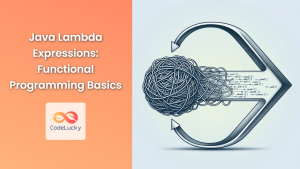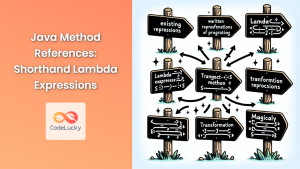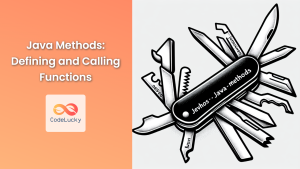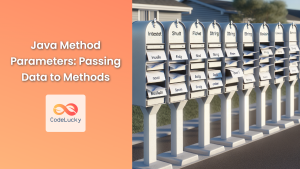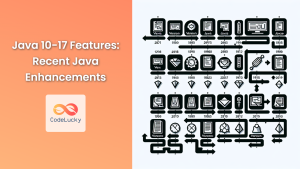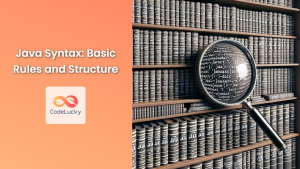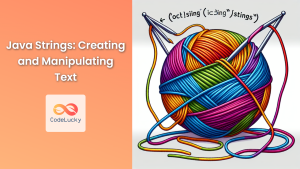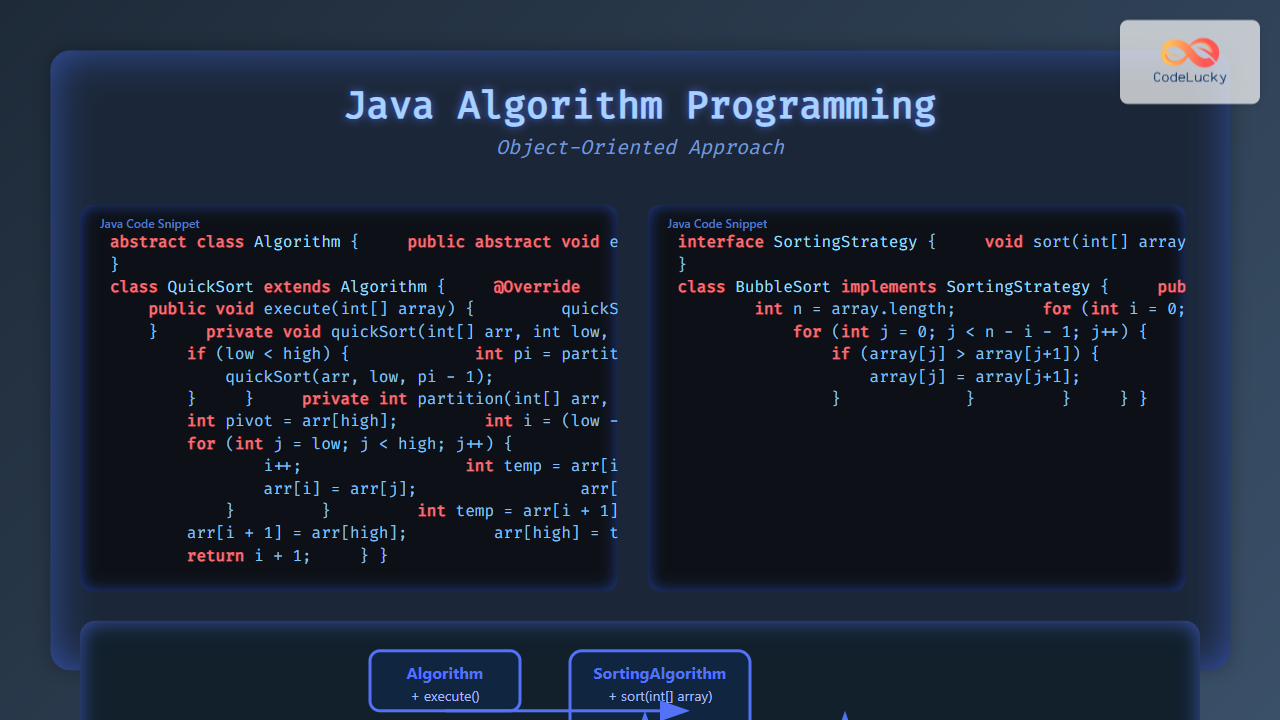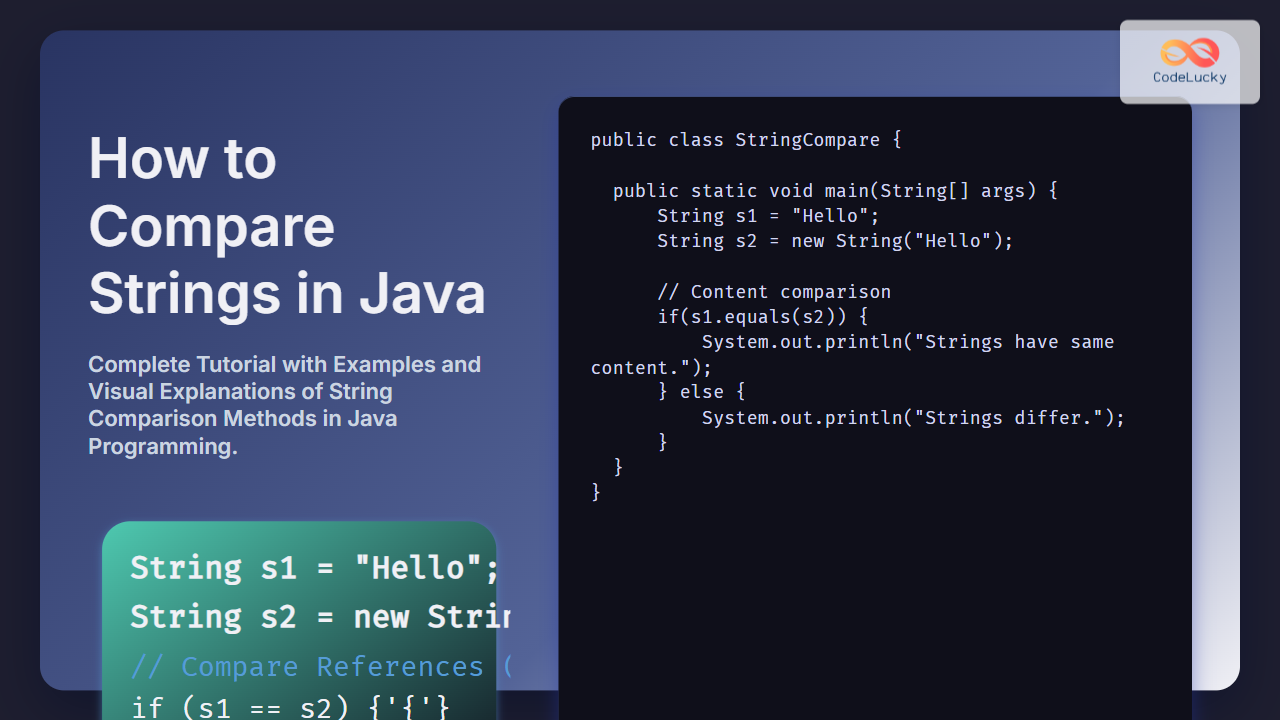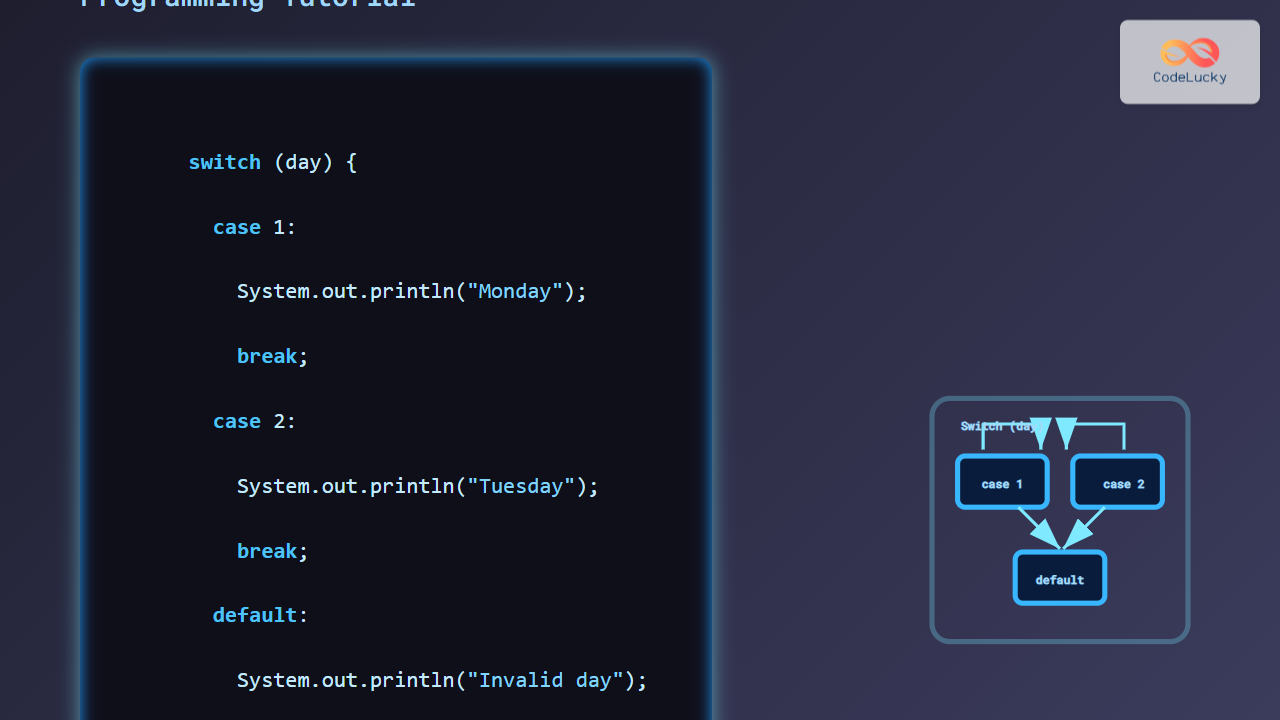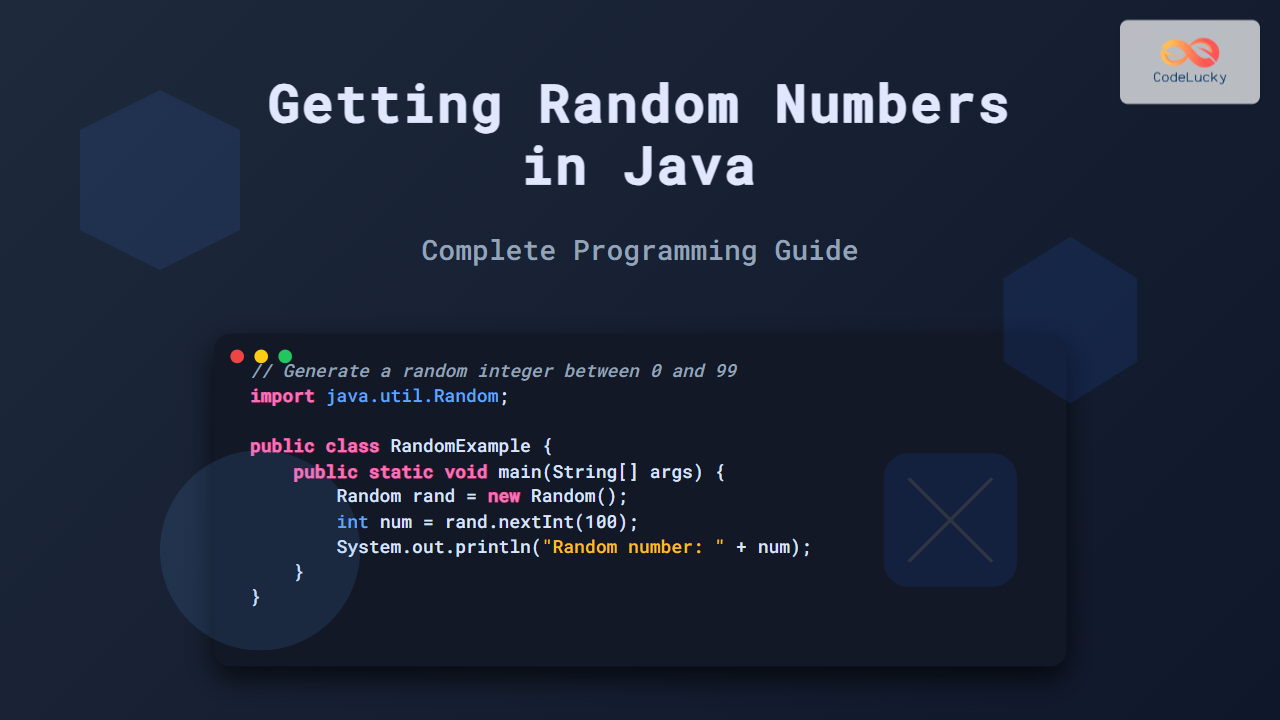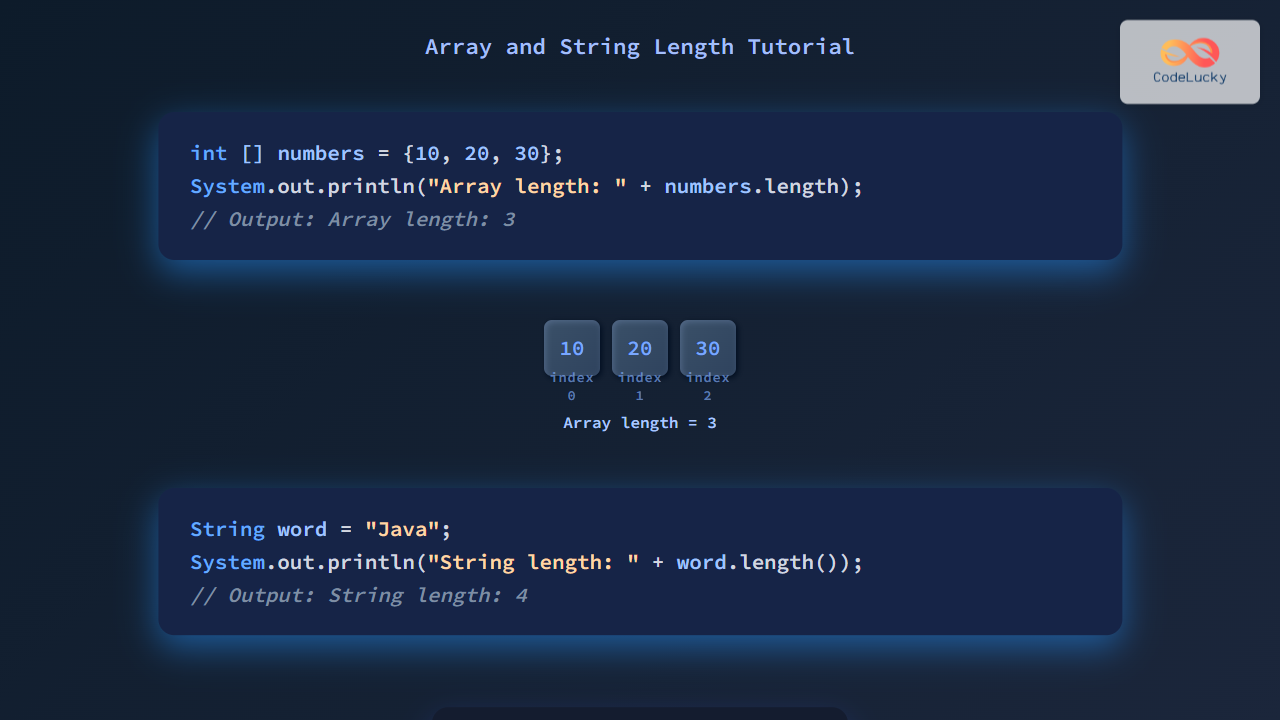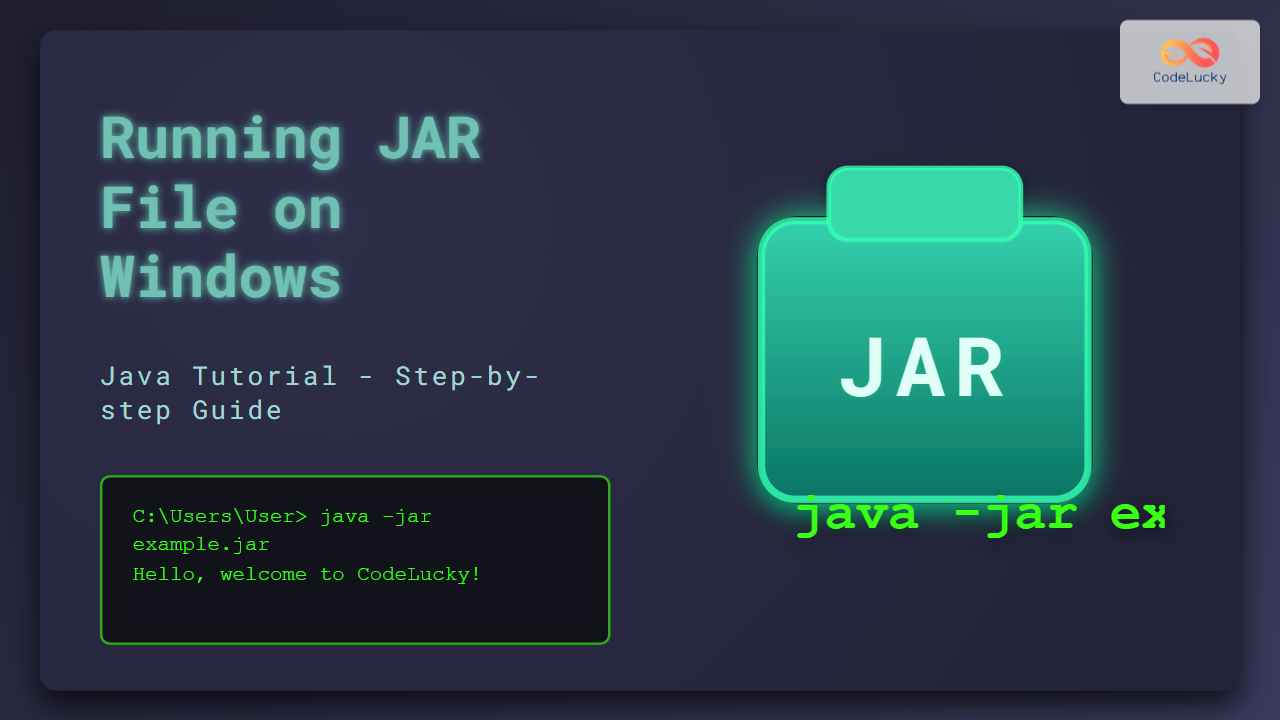Java 8, released in March 2014, introduced a wealth of new features that revolutionized the way developers write code in Java. This version brought significant improvements in terms of readability, flexibility, and performance. In this comprehensive guide, we'll dive deep into the most impactful features of Java 8, providing detailed explanations and practical examples to help you master these concepts.
1. Lambda Expressions
🚀 Lambda expressions are one of the most significant additions to Java 8. They provide a clear and concise way to represent one method interface using an expression. Lambda expressions enable you to treat functionality as a method argument, or code as data.
Syntax
The basic syntax of a lambda expression is:
(parameters) -> expression
or
(parameters) -> { statements; }
Examples
Let's look at some practical examples to understand lambda expressions better:
Example 1: Sorting a list
Before Java 8:
List<String> names = Arrays.asList("John", "Alice", "Bob", "Charlie");
Collections.sort(names, new Comparator<String>() {
@Override
public int compare(String a, String b) {
return b.compareTo(a);
}
});
With Java 8 lambda:
List<String> names = Arrays.asList("John", "Alice", "Bob", "Charlie");
Collections.sort(names, (String a, String b) -> b.compareTo(a));
In this example, we've reduced the verbose anonymous class to a single line of code using a lambda expression.
Example 2: Iterating through a list
Before Java 8:
List<Integer> numbers = Arrays.asList(1, 2, 3, 4, 5);
for (Integer number : numbers) {
System.out.println(number);
}
With Java 8 lambda:
List<Integer> numbers = Arrays.asList(1, 2, 3, 4, 5);
numbers.forEach(number -> System.out.println(number));
Here, we've used the forEach method with a lambda expression to iterate through the list, making the code more concise and readable.
2. Functional Interfaces
🎯 Functional interfaces are interfaces that contain only one abstract method. They can have multiple default or static methods but must have exactly one abstract method. Java 8 introduced the @FunctionalInterface annotation to mark interfaces as functional interfaces.
Common Functional Interfaces
Java 8 provides several built-in functional interfaces in the java.util.function package. Here are some commonly used ones:
Predicate<T>: Represents a predicate (boolean-valued function) of one argument.Function<T, R>: Represents a function that accepts one argument and produces a result.Consumer<T>: Represents an operation that accepts a single input argument and returns no result.Supplier<T>: Represents a supplier of results.
Let's see examples of each:
Predicate
Predicate<Integer> isEven = n -> n % 2 == 0;
System.out.println(isEven.test(4)); // Output: true
System.out.println(isEven.test(7)); // Output: false
Function
Function<Integer, String> intToString = i -> "Number: " + i;
System.out.println(intToString.apply(42)); // Output: Number: 42
Consumer
Consumer<String> printUpperCase = s -> System.out.println(s.toUpperCase());
printUpperCase.accept("hello"); // Output: HELLO
Supplier
Supplier<Double> randomNumber = () -> Math.random();
System.out.println(randomNumber.get()); // Output: A random number between 0 and 1
3. Stream API
🌊 The Stream API is another groundbreaking feature introduced in Java 8. It allows you to process collections of objects in a declarative way. Streams can be used to filter, collect, map, and perform various other operations on collections.
Key Concepts
- Stream Creation: Streams can be created from various data sources, including collections, arrays, and I/O channels.
- Intermediate Operations: These are operations that transform a stream into another stream, such as
filter,map, andsorted. - Terminal Operations: These are operations that produce a result or a side-effect, such as
forEach,collect, andreduce.
Examples
Let's explore some practical examples of using the Stream API:
Example 1: Filtering and Collecting
List<String> names = Arrays.asList("John", "Alice", "Bob", "Charlie", "David");
List<String> filteredNames = names.stream()
.filter(name -> name.length() > 4)
.collect(Collectors.toList());
System.out.println(filteredNames); // Output: [Alice, Charlie, David]
In this example, we filter names with more than 4 characters and collect them into a new list.
Example 2: Mapping and Averaging
List<Employee> employees = Arrays.asList(
new Employee("John", 50000),
new Employee("Alice", 60000),
new Employee("Bob", 55000)
);
double averageSalary = employees.stream()
.mapToDouble(Employee::getSalary)
.average()
.orElse(0.0);
System.out.println("Average Salary: " + averageSalary); // Output: Average Salary: 55000.0
Here, we map the employees to their salaries and calculate the average salary.
Example 3: Grouping and Counting
List<String> words = Arrays.asList("apple", "banana", "apple", "cherry", "banana", "date");
Map<String, Long> wordCounts = words.stream()
.collect(Collectors.groupingBy(Function.identity(), Collectors.counting()));
System.out.println(wordCounts);
// Output: {apple=2, banana=2, cherry=1, date=1}
This example demonstrates grouping words and counting their occurrences using the Stream API.
4. Optional Class
⚠️ The Optional class is a container object used to contain not-null objects. It's designed to represent optional values instead of null references, helping to prevent NullPointerExceptions.
Key Methods
of(T value): Returns an Optional with the specified present non-null value.ofNullable(T value): Returns an Optional describing the specified value, if non-null, otherwise returns an empty Optional.isPresent(): Returns true if there is a value present, otherwise false.ifPresent(Consumer<? super T> consumer): If a value is present, invoke the specified consumer with the value, otherwise do nothing.orElse(T other): Return the value if present, otherwise return other.
Example
public class OptionalExample {
public static void main(String[] args) {
String name = "John";
Optional<String> optionalName = Optional.ofNullable(name);
// Using ifPresent
optionalName.ifPresent(n -> System.out.println("Name is present: " + n));
// Using orElse
String result = optionalName.orElse("Unknown");
System.out.println("Result: " + result);
// Using map and orElse
String upperCaseName = optionalName
.map(String::toUpperCase)
.orElse("UNKNOWN");
System.out.println("Uppercase name: " + upperCaseName);
}
}
Output:
Name is present: John
Result: John
Uppercase name: JOHN
5. Default Methods
🔧 Default methods allow the addition of new methods to interfaces without breaking the existing implementation of these interfaces. This feature was introduced to enable the evolution of interfaces over time.
Syntax
public interface InterfaceName {
default void methodName() {
// method body
}
}
Example
interface Vehicle {
void start();
default void stop() {
System.out.println("Vehicle stopping...");
}
}
class Car implements Vehicle {
@Override
public void start() {
System.out.println("Car starting...");
}
}
public class DefaultMethodExample {
public static void main(String[] args) {
Car car = new Car();
car.start(); // Output: Car starting...
car.stop(); // Output: Vehicle stopping...
}
}
In this example, the Vehicle interface has a default stop() method. The Car class implements Vehicle but doesn't override stop(), so it uses the default implementation.
6. Method References
👉 Method references provide a way to refer to methods or constructors without invoking them. They can be seen as shorthand notation for certain lambda expressions.
Types of Method References
- Reference to a static method:
ContainingClass::staticMethodName - Reference to an instance method of a particular object:
containingObject::instanceMethodName - Reference to an instance method of an arbitrary object of a particular type:
ContainingType::methodName - Reference to a constructor:
ClassName::new
Examples
Static Method Reference
List<Integer> numbers = Arrays.asList(1, 2, 3, 4, 5);
numbers.forEach(System.out::println);
This is equivalent to:
numbers.forEach(n -> System.out.println(n));
Instance Method Reference
class StringUtils {
public boolean isLowerCase(String s) {
return s.equals(s.toLowerCase());
}
}
StringUtils utils = new StringUtils();
Predicate<String> isLowerCase = utils::isLowerCase;
System.out.println(isLowerCase.test("hello")); // Output: true
System.out.println(isLowerCase.test("Hello")); // Output: false
Constructor Reference
interface PersonFactory {
Person create(String name);
}
class Person {
private String name;
public Person(String name) {
this.name = name;
}
public String getName() {
return name;
}
}
PersonFactory factory = Person::new;
Person person = factory.create("John");
System.out.println(person.getName()); // Output: John
7. Date and Time API
🕒 Java 8 introduced a new date and time API in the java.time package to address the shortcomings of the old java.util.Date and java.util.Calendar classes.
Key Classes
LocalDate: Represents a date (year, month, day)LocalTime: Represents a time (hour, minute, second, nanosecond)LocalDateTime: Represents both a date and a timeZonedDateTime: Represents a date and time with a time zonePeriod: Represents a quantity of time in terms of years, months, and daysDuration: Represents a quantity of time in terms of seconds and nanoseconds
Examples
Working with LocalDate
LocalDate today = LocalDate.now();
System.out.println("Today: " + today);
LocalDate specificDate = LocalDate.of(2023, Month.JUNE, 15);
System.out.println("Specific date: " + specificDate);
LocalDate parsedDate = LocalDate.parse("2023-06-15");
System.out.println("Parsed date: " + parsedDate);
LocalDate futureDate = today.plusDays(30);
System.out.println("30 days from now: " + futureDate);
Working with LocalTime
LocalTime now = LocalTime.now();
System.out.println("Current time: " + now);
LocalTime specificTime = LocalTime.of(13, 30, 0);
System.out.println("Specific time: " + specificTime);
LocalTime parsedTime = LocalTime.parse("13:30:00");
System.out.println("Parsed time: " + parsedTime);
Working with LocalDateTime
LocalDateTime currentDateTime = LocalDateTime.now();
System.out.println("Current date and time: " + currentDateTime);
LocalDateTime specificDateTime = LocalDateTime.of(2023, Month.JUNE, 15, 13, 30, 0);
System.out.println("Specific date and time: " + specificDateTime);
LocalDateTime parsedDateTime = LocalDateTime.parse("2023-06-15T13:30:00");
System.out.println("Parsed date and time: " + parsedDateTime);
Working with ZonedDateTime
ZonedDateTime currentZonedDateTime = ZonedDateTime.now();
System.out.println("Current date, time and zone: " + currentZonedDateTime);
ZoneId newYorkZone = ZoneId.of("America/New_York");
ZonedDateTime newYorkTime = ZonedDateTime.now(newYorkZone);
System.out.println("Current date and time in New York: " + newYorkTime);
Working with Period and Duration
LocalDate startDate = LocalDate.of(2023, Month.JANUARY, 1);
LocalDate endDate = LocalDate.of(2023, Month.DECEMBER, 31);
Period period = Period.between(startDate, endDate);
System.out.println("Period between dates: " + period);
LocalTime startTime = LocalTime.of(9, 0);
LocalTime endTime = LocalTime.of(17, 30);
Duration duration = Duration.between(startTime, endTime);
System.out.println("Duration between times: " + duration);
Conclusion
Java 8 introduced a plethora of features that significantly improved the language's expressiveness and functionality. From lambda expressions and the Stream API to the new Date and Time API, these additions have made Java more powerful and easier to use.
By mastering these features, you can write more concise, readable, and efficient code. Lambda expressions and method references allow for more functional programming styles, while the Stream API provides a declarative approach to data processing. The Optional class helps in writing null-safe code, and default methods in interfaces enable easier evolution of APIs.
As you continue to work with Java, make sure to leverage these features to their full potential. They not only make your code more elegant but also more performant and maintainable. Happy coding! 🚀👨💻👩💻


